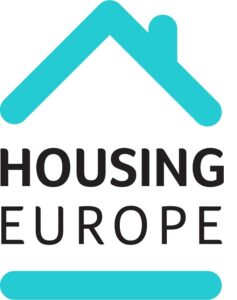Austrian legislation and auditing of limited-profit housing

Most social housing providers across the UNECE region operate according to legislation which defines their mission, realm of operations and business conduct. Austria has a well-defined “cost rent”, limited-profit housing association (LPHA) system.
Description
This requires auditing of cost-capped resources, including land costs, financing and management costs, and size of dwellings under 150 m2, as well as cost-covering approaches to rent setting and indexing. Equity and assets must be dedicated towards affordable housing.
The Austrian regulatory system is based on a number of key national laws like the Limited-Profit Housing Act, though delivery is a regional responsibility. The legislative framework sets out the role and rent-setting procedures of social housing providers which form 24 per cent of housing stock, comprising municipal housing companies and LPHAs. The LPHA sector owns about 17 per cent of housing stock and its key principals.
The key principles of limited-profit housing in Austria:
- Cost-rent: LPHA calculate on a cost-basis, which means that rents can neither be set above nor below the costs incurred in the production, financing and management of residential buildings (cost rent). Rented homes for which financing loans have been paid off are subject to rent control on a permanent basis, something known as the “Grundmiete”, a flat-rate rent which in most cases is below the cost rent.
- Limitation of profits: Revenue-generating components are a part of cost-covering prices. In the case of LPHA, however, these are clearly defined by legislation and supplementary regulations which set upper limits.
- Revolving funds: Equity is permanently tied up for limited-profit purposes and surpluses are continuously reinvested. This is guaranteed by a limitation on profit distribution among owners and by an obligation to regularly reinvest any surpluses in housing construction. Furthermore, shares in a limited-profit housing association may only be sold off at a nominal value of the initial investment.
- Personnel restrictions: LPHA must be independent from the construction industry to prevent tie-in deals to the detriment of tenants. This applies particularly to the functionaries of limited-profit companies. The salaries of functionaries may also not exceed statutory limits
- Limited business activities: Limited-profit housing associations must primarily pursue business activities that are within their main legal scope – home construction, maintenance and renovation, and must do so in their own name. For activities outside the main scope of business activities, such as construction of business premises, garages, and community facilities, LPHA require the permission of regional governments.
- Audit requirements: All limited-profit building associations must be members of an auditing association and audited annually by independent auditors. The audit monitors legislation compliance, including efficient use of resources and capital as well as sound management of the organization.
The Austrian regulatory approach is designed to create effective, mission-focused housing outcomes via not-for-profit providers that employ resources appropriately, efficiently and transparently. It promotes affordability, well-maintained assets and growth over the short and longer term. It has also prospered in turbulent economic and political climates. A recent review of the impact of the Austrian LPHA sector concluded that it adds nearly EUR 1 billion to Austrian GDP annually. It does this primarily by boosting private consumption, through lower housing costs, and allowing for greater public investment in economically productive areas (such as education or research) as a result of savings made relative to a situation in which low-income households had their housing needs met via additional social welfare payments and income supports.[1]
Good regulation of the LPHA sector is mutually reinforced by internal regulation, management norms and external legislation. It comprises the following layers of regulation:
- Internal control by a specialist auditor reporting to the CEO and Board of the association;
- Industry control by a specialist auditing industry body (Revisionsverband) which all registered associations must pay to join (40 auditors operating regionally spend two weeks annually with each provider and provide certified reports of their compliance and performance to funders – the nine state governments);
- External State Government control by housing departments providing subsidies to associations via a review of annual Revisionsverband reports as well as up-front and post assessments of the implementation of project subsidies, submitted via local governments;
- National Legislation concerning (i) Housing Organizations for the Common Good, which outlines the business model for organizations with a social purpose serving eligible households, and (ii) governing the use of housing subsidies and cost-rent setting;
- Reviews by court system of specific cases.
Scale
National
[1] Austrian Federation of Limited-Profit Housing Associations, “The economic impacts of Limited-Profit Housing Associations in Austria”. Available at https://cms.gbv.at/repos/files/GBV/PDF/Studien_Publikationen_GBV/Summary%20WIFO%20study_The%20economic%20impacts%20of%20limited%20profit%20housing%20associations.pdf?exp=36561&fps=fabe0600122fc77400d1f01fc6cf3d3d9d2813f3

An initiative of:


